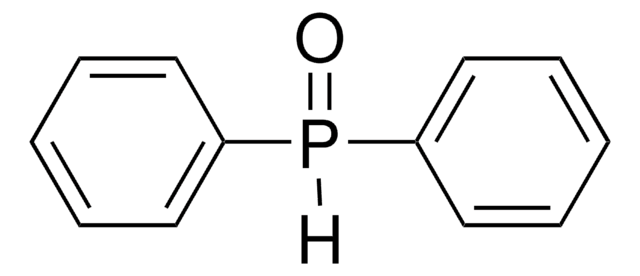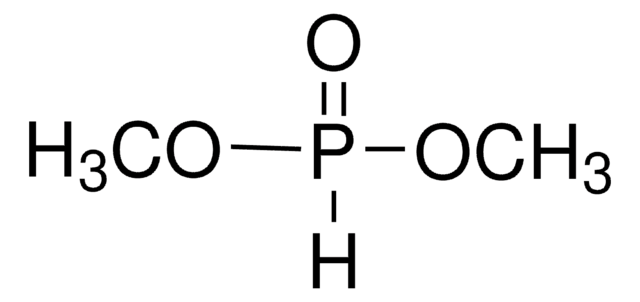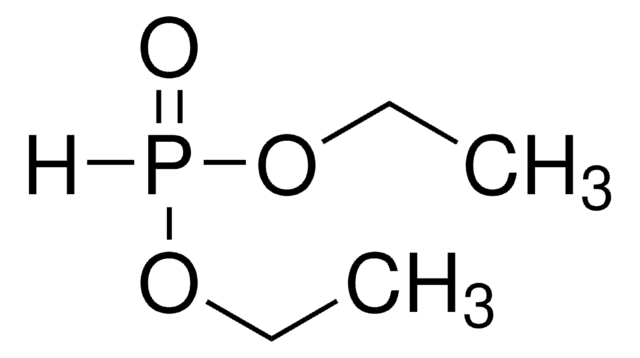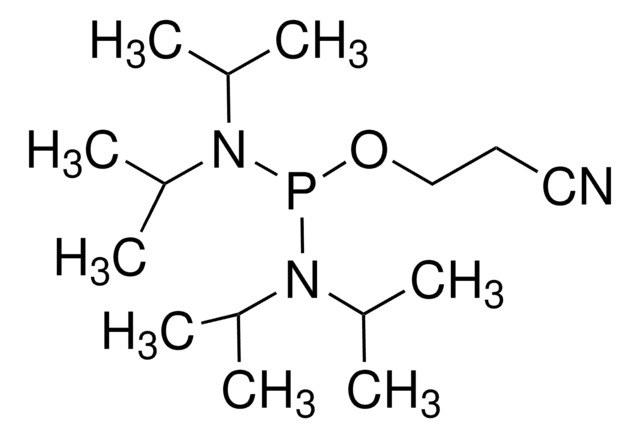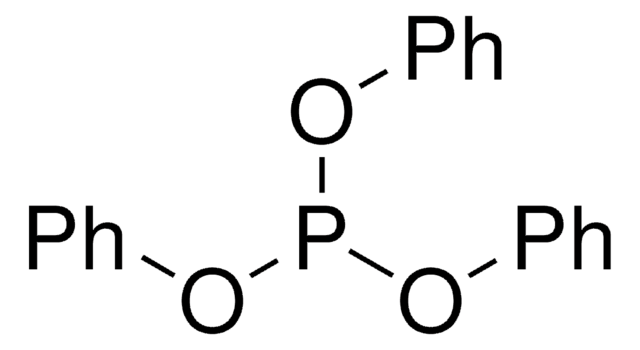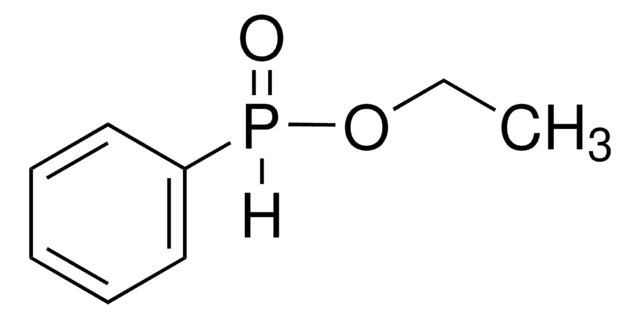D210803
Diphenyl phosphite
Synonym(s):
Diphenoxyphosphine oxide, Diphenyl phosphonate, NSC 43786
About This Item
Recommended Products
vapor density
8.1 (vs air)
Quality Level
vapor pressure
5 mmHg ( 140 °C)
form
liquid
impurities
≤15% phenol
refractive index
n20/D 1.558 (lit.)
bp
218-219 °C/26 mmHg (lit.)
mp
12 °C (lit.)
density
1.223 g/mL at 25 °C (lit.)
SMILES string
O=[PH](Oc1ccccc1)Oc2ccccc2
InChI
1S/C12H11O3P/c13-16(14-11-7-3-1-4-8-11)15-12-9-5-2-6-10-12/h1-10,16H
InChI key
OGBPILLJZSJJRC-UHFFFAOYSA-N
Looking for similar products? Visit Product Comparison Guide
Application
- Synthesis of N-benzylarylamide and di-Ph α-aminomethanephosphonate derivatives used as additives for thermooxidative stability of ester-based oils
- One-pot three-component Kabachnik-Fields reactions
- Visible light mediated oxidative phosphonylations of amines
- Modified asymmetric Pudovik addition with haloketones
- Tandem decarboxylation-coupling with natural alpha-amino acids
Signal Word
Danger
Hazard Statements
Precautionary Statements
Hazard Classifications
Acute Tox. 4 Oral - Eye Dam. 1 - Skin Irrit. 2 - STOT SE 3
Target Organs
Respiratory system
Storage Class Code
10 - Combustible liquids
WGK
WGK 3
Flash Point(F)
348.8 °F - closed cup
Flash Point(C)
176 °C - closed cup
Personal Protective Equipment
Regulatory Listings
Regulatory Listings are mainly provided for chemical products. Only limited information can be provided here for non-chemical products. No entry means none of the components are listed. It is the user’s obligation to ensure the safe and legal use of the product.
FSL
Group 4: Flammable liquids
Type 3 petroleums
Hazardous rank III
Water insoluble liquid
JAN Code
D210803-500G:
D210803-100G:
D210803-5G:
D210803-VAR:
D210803-1KG:
D210803-BULK:
Choose from one of the most recent versions:
Already Own This Product?
Find documentation for the products that you have recently purchased in the Document Library.
Customers Also Viewed
Global Trade Item Number
| SKU | GTIN |
|---|---|
| D210803-100G | 4061833561607 |
| D210803-500G | 4061833561614 |
| D210803-5G | |
| D210803-1KG |
Our team of scientists has experience in all areas of research including Life Science, Material Science, Chemical Synthesis, Chromatography, Analytical and many others.
Contact Technical Service
